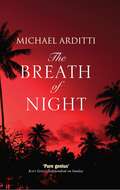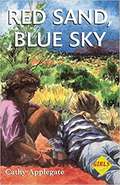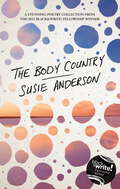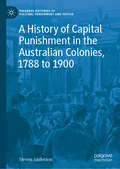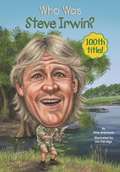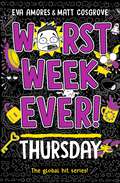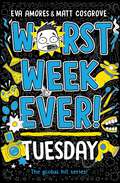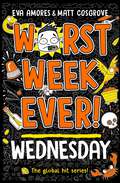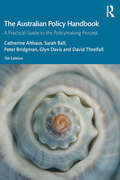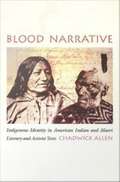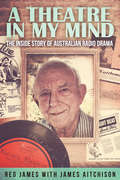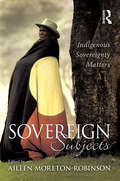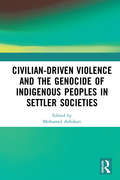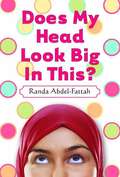- Table View
- List View
The Breath of Night
by Michael ArdittiPhilip Seward travels to the Philippines to investigate the case of a missionary priest imprisoned for murder, where he is drawn into a labyrinth of vice, violence, and corruption where nothing and nobody are what they seem.'Part Conrad, part Waugh, part Greene, and pure genius' Independent on Sunday'This is Arditti's most dazzling novel to date because of the scale of his ambition and his triumph in pulling it off' Peter Stanford, Daily TelegraphWhile working as a missionary priest in the Philippines during the Marcos dictatorship, Julian Tremayne championed the Communist rebels and found himself imprisoned for murder. Now, three decades later, following Julian's death, a cult develops around him, even calling for sainthood. When Philip Seward goes to investigate on behalf of Julian's family, he is drawn into a labyrinth of vice, violence, and corruption where nothing and nobody are what they seem. Enriched by a gallery of engaging characters ranging from priests to prostitutes, GIs to gangsters, and street children to Imelda Marcos, this outstanding novel is at once a gripping psychological thriller, a challenging moral mystery, and an unforgettable voyage into a dark and exotic landscape.
Red Sand, Blue Sky (Girls First!)
by Cathy ApplegateAt the center of Australia is a vast red desert known as the Outback. For twelve-year-old Amy from Melbourne who arrives to visit her aunt, it is a world unlike anything she's ever seen before. But then she meets Lana, a local Aboriginal girl who, like Amy, has recently lost her mother, and the two girls overcome differences to form a surprising bond. <p><p> With warmth and humor, Red Sand, Blue Sky charts the encounter between Amy and Lana and their deepening friendship. Through Lana, Amy learns about the harsh treatment suffered by the Aboriginal people at the hands of the white settlers who were her ancestors, while Lana comes to appreciate Amy's and her aunt's commitment to protect the sacredness of the land.
The Future of Australian Federalism
by Gabrielle Appleby Nicholas Aroney Thomas John"At a time when the operation and reform of federal relations within Australia is squarely on the political agenda, this volume brings together eminent lawyers, economists and political scientists who explain, analyse and evaluate the theory and principles underpinning the Australian federal system. Topics covered include the High Court's approach to the interpretation of the Constitution and how this has influenced federal relations in practice; different forms of inter-governmental co-operative arrangements; fiscal relations between the Commonwealth and the States; and emergent ethno-cultural and socioeconomic diversity within the Australian Federation. Comparative perspectives from Germany, America, Canada, Switzerland, India and the European Union provide unique prisms through which to view the operation of the Australian system and to contemplate its reform"--
the body country
by Susie Anderson'I keep looking at the stars to see the universe, but the joke is I am the universe.' the body country is an evocative exploration of a world that too often marginalises and the power of a land that can offer connection. A meditation of wandering and wondering on Country, inviting the reader to understand the complexities and changing forms of self and love.A Wergaia and Wemba Wemba woman, Susie Anderson captures profound meaning in moments often lost in the busyness of a day, encouraging us all to stop and allow ourselves the space to notice. To notice the shape of a mouth as it says goodbye; the colour of the sky as you fall in love; the way a steering wheel is turned carelessly after many wines; the crunch of dry ground after drought; the smell of fire on the wind; the movement of ants before rain; the power a word, a dress, a piece of art can give to run towards something new. These are poems that take us across rural and urban settings; from the personal to the universal, from looking inward to mapping the land and always bringing us back to the Country that connects us all.'Anderson pays attention to the moments that slip through the cracks and hands them straight to you in a way that can momentarily stun' Harper's Bazaar'The Body Country is an evocative exploration of a world that too often marginalises and the power of a land that can offer connection. Susie captures profound meaning in moments often lost in the busyness of a day, encouraging us all to stop and allow ourselves the space to notice' Wimmera Mail Times
A History of Capital Punishment in the Australian Colonies, 1788 to 1900 (Palgrave Histories of Policing, Punishment and Justice)
by Steven AndersonThis book provides a comprehensive overview of capital punishment in the Australian colonies for the very first time. The author illuminates all aspects of the penalty, from shortcomings in execution technique, to the behaviour of the dying criminal, and the antics of the scaffold crowd. Mercy rates, execution numbers, and capital crimes are explored alongside the transition from public to private executions and the push to abolish the death penalty completely. Notions of culture and communication freely pollinate within a conceptual framework of penal change that explains the many transformations the death penalty underwent. A vast array of sources are assembled into one compelling argument that shows how the ‘lesson’ of the gallows was to be safeguarded, refined, and improved at all costs. This concise and engaging work will be a lasting resource for students, scholars, and general readers who want an in-depth understanding of a long feared punishment.Dr. Steven Anderson is a Visiting Research Fellow in the History Department at The University of Adelaide, Australia. His academic research explores the role of capital punishment in the Australian colonies by situating developments in these jurisdictions within global contexts and conceptual debates.
Who Was Steve Irwin? (Who was?)
by Dina Anastasio Jim EldridgeBy popular demand, the 100th Who Was...? subject is Steve Irwin!Steve Irwin did not have a typical childhood. Born in Melbourne, Australia, on February 22, 1962, he was raised on the wildlife park his parents owned. He cared for the animals and especially loved reptiles--he got a python for his sixth birthday! At nine years old, Steve was already helping his father wrestle small crocodiles. He became a crocodile trapper after graduating high school, catching the creatures before dangerous poachers could. Steve met his wife, Terri, at his family's park, and instead of a honeymoon, the pair filmed a wildlife documentary that led to the creation of the well-known series The Crocodile Hunter. Tragically, Steve was killed on September 4, 2006 while filming a documentary when a stingray attacked, piercing his heart. He was forty-four years old. However, his life's work obviously still strikes a chord with kids who voted him the winner of the 100th Who Was...? title.
Worst Week Ever! Thursday (Worst Week Ever! #4)
by Eva Amores Matt CosgroveHave YOU ever had a bad week? The hilarious new series taking the world by storm. He&’s dressed up like a clown on national TV, his worst enemy is stealing the limelight, and there's definitely something weird happening with everyone's cats! Justin Chase is having the WORST WEEK EVER! At least he's found a new BFF in international pop sensation, teen heartthrob and Justin&’s name twin, Justin Chase, right? Maybe not... As a case of mistaken identity leads to a disastrous kidnapping and Justin forced to race against the clock (and the ferocious dog) to escape! Monday was mortifying, Tuesday was tumultuous, Wednesday was wild, but now it's... THURSDAY! The fourth book in the hilarious new seven-part highly-illustrated series for fans of Tom Gates, Diary of a Wimpy Kid and the Treehouse series.
Worst Week Ever! Tuesday
by Eva Amores Matt CosgroveHave YOU ever had a bad week? The hilarious new series taking the world by storm. His cat has been abducted by aliens, his dad is dating his new head teacher, and he&’s unexpectedly gone viral online in the most embarrassing way. Justin Chase is having the WORST WEEK EVER! At least his new-found inter-fame (or inter-shame) won't stand in the way of getting the perfect school photo, right? Maybe not... As the school&’s Super Science Spectacular is destined to blow up into a hair-raising, teeth-shattering disaster of epic proportions! He barely made it through Monday, but now it&’s... Tuesday! The second book in the hilarious new seven-part highly-illustrated series for fans of Tom Gates, Diary of a Wimpy Kid and the Treehouse series.
Worst Week Ever! Wednesday (Worst Week Ever! #3)
by Eva Amores Matt CosgroveHave YOU ever had a bad week? The hilarious new series taking the world by storm. His cat is still missing, he&’s an unintentional internet sensation, and now he&’s trapped in a serious S.O.S situation with his unbelievably annoying archenemy! Justin Chase is having the WORST WEEK EVER! At least there&’s the chance of this totally abandoned island being home to hordes of secret treasure, right? Maybe not... As the island seems only to house terrifying sharks, petrifying pirates and anything capable of chilling Justin right down to his bones! Monday was messy, Tuesday was an embarrassment, but now it&’s... WEDNESDAY! The third book in the hilarious new seven-part highly-illustrated series for fans of Tom Gates, Diary of a Wimpy Kid and the Treehouse series.
The Australian Policy Handbook: A Practical Guide to the Policymaking Process
by Catherine Althaus Sarah Ball Peter Bridgman Glyn Davis David ThrelfallThe seventh edition of this classic handbook on the policy process is fully updated, featuring new material on policy making amid local and global disruption, the contestable nature of modern policy advice, commissioning and contracting, public engagement and policy success and failure. The Australian Policy Handbook shows how public policy permeates every aspect of our lives. It is the stuff of government, justifying taxes, driving legislation and shaping our social services. Public policy gives us roads, railways and airports, emergency services, justice, education and health services, defence, industry development and natural resource management. While politicians make the decisions, public servants provide analysis and support for those choices. This updated edition includes new visuals and introduces a series of case studies for the first time. These cases—covering family violence, behavioural economics, justice reinvestment, child protection and more—illustrate the personal and professional challenges of policymaking practice. Drawing on their extensive practical and academic experience, the authors outline the processes used in making public policy. They systematically explain the relationships between political decision makers, public service advisers, community participants and those charged with implementation. The Australian Policy Handbook remains the essential guide for students and practitioners of policy making in Australia.
Blood Narrative: Indigenous Identity in American Indian and Maori
by Chadwick AllenBlood Narrative is a comparative literary and cultural study of post-World War II literary and activist texts by New Zealand Maori and American Indians--groups who share much in their responses to European settler colonialism. Chadwick Allen reveals the complex narrative tactics employed by writers and activists in these societies that enabled them to realize unprecedented practical power in making both their voices and their own sense of indigeneity heard. Allen shows how both Maori and Native Americans resisted the assimilationist tide rising out of World War II and how, in the 1960s and 1970s, they each experienced a renaissance of political and cultural activism and literary production that culminated in the formation of the first general assembly of the World Council of Indigenous Peoples. He focuses his comparison on two fronts: first, the blood/land/memory complex that refers to these groups' struggles to define indigeneity and to be freed from the definitions of authenticity imposed by dominant settler cultures. Allen's second focus is on the discourse of treaties between American Indians and the U. S. government and between Maori and Great Britain, which he contends offers strong legal and moral bases from which these indigenous minorities can argue land and resource rights as well as cultural and identity politics. With its implicit critique of multiculturalism and of postcolonial studies that have tended to neglect the colonized status of indigenous First World minorities, Blood Narrative will appeal to students and scholars of literature, American and European history, multiculturalism, postcolonialism, and comparative cultural studies.
A Theatre in my Mind
by James Aitchison Reg JamesRadio drama is often called the "theatre of the mind", wherein a listener's imagination is stimulated by voices, sounds, and music to create mental imagery as real as any bricks-and-mortar theatre. Reg James spent a lifetime in the thick of Australian radio drama. Rising through the ranks at Grace Gibson Radio Productions -- from despatch boy to general manager -- he takes us behind the scenes into the fascinating world of broadcasting from the 1930s to the present day. The great shows, the magic voices, the pure drama of putting shows to air -- Reg shares his secrets and stories in this amazing journey back in time to a lost era. With co-author James Aitchison, Reg invites you to join him in this unique theatre. Essential reading for anyone who enjoyed listening to radio serials, and for those fascinated by Australian radio. Authors of Yes, Miss Gibson, the biography of Grace Gibson.
Sovereign Subjects: Indigenous sovereignty matters
by Aileen Moreton-Robinson; Rachel Fensham; Jon StrattonIndigenous rights in Australia are at a crossroads. Over the past decade, neo-liberal governments have reasserted their claim to land in Australia, and refuse to either negotiate with the Indigenous owners or to make amends for the damage done by dispossession. Many Indigenous communities are in a parlous state, under threat both physically and culturally.In Sovereign Subjects some of Indigenous Australia's emerging and well-known critical thinkers examine the implications for Indigenous people of continuing to live in a state founded on invasion. They show how for Indigenous people, self-determination, welfare dependency, representation, cultural maintenance, history writing, reconciliation, land ownership and justice are all inextricably linked to the original act of dispossession by white settlers and the ongoing loss of sovereignty.At a time when the old left political agenda has run its course, and the new right is looking increasingly morally bankrupt, Sovereign Subjects sets a new rights agenda for Indigenous politics and Indigenous studies.
Civilian-Driven Violence and the Genocide of Indigenous Peoples in Settler Societies
by Mohamed AdhikariExisting studies of settler colonial genocides explicitly consider the roles of metropolitan and colonial states, and their military forces in the perpetration of exterminatory violence in settler colonial situations, yet rarely pay specific attention to the dynamics around civilian-driven mass violence against indigenous peoples. In many cases, however, civilians were major, if not the main, perpetrators of such violence. The focus of this book is thus on the role of civilians as perpetrators of exterminatory violence and on those elements within settler colonial situations that promoted mass violence on their part.
Does My Head Look Big In This?
by Randa Abdel-FattahWhen sixteen-year-old Amal decides to wear the hijab full-time, her entire world changes, all because of a piece of cloth ... Sixteen-year-old Amal makes the decision to start wearing the hijab full- time and everyone has a reaction. Her parents, her teachers, her friends, people on the street. But she stands by her decision to embrace her faith and all that it is, even if it does make her a little different from everyone else. Can she handle the taunts of "towel head," the prejudice of her classmates, and still attract the cutest boy in school? Brilliantly funny and poignant, Randa Abdel-Fattah's debut novel will strike a chord in all teenage readers, no matter what their beliefs.
